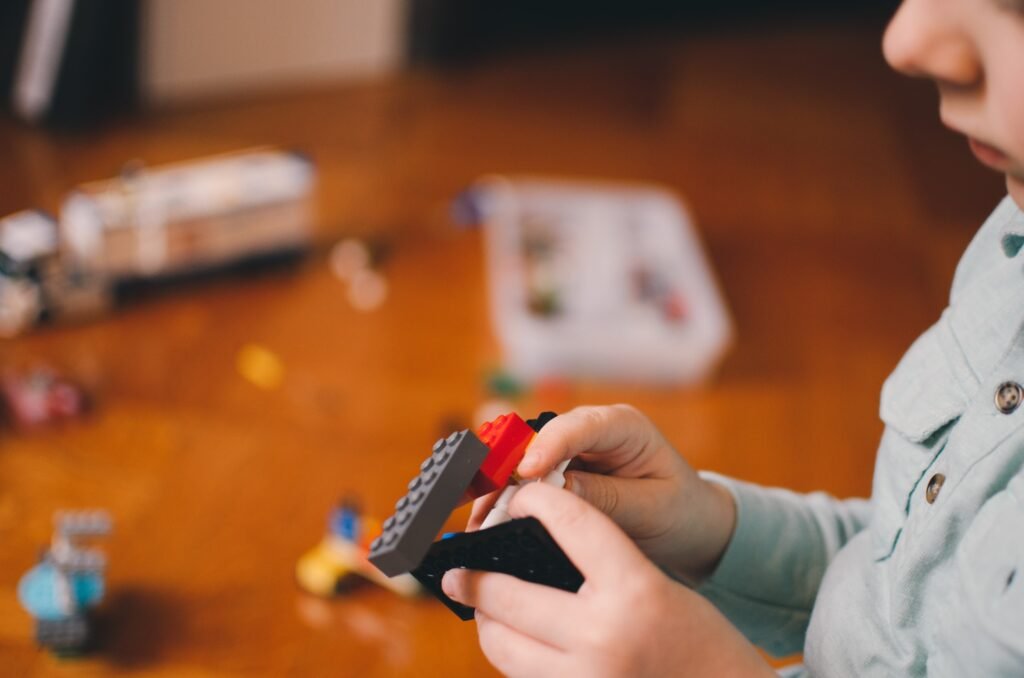As a parent, you may often find yourself wondering how to get your children involved in daily household tasks and responsibilities. It’s not always easy to convince them to lend a helping hand, but involving your kids in these tasks can have numerous benefits. It not only teaches them essential life skills but also promotes a sense of responsibility and independence. In this article, we will explore some effective strategies to engage your kids in everyday household chores, making it a fun and educational experience for them.

Setting the Stage for Involvement
Lead by Example
One of the most effective ways to involve kids in daily household tasks is by leading by example. Children learn by observing and imitating their parents or guardians, so it’s important for adults to demonstrate a positive attitude towards completing chores. When kids see you actively engaged in household tasks, they are more likely to develop an interest in participating as well. Whether it’s doing the dishes, folding laundry, or tidying up, let your children see you taking responsibility for your share of the work.
Create a Positive Environment
Creating a positive environment is essential when involving kids in daily household tasks. Make sure to set a friendly and encouraging tone for chores. Avoid using negative language or criticizing their efforts. Instead, focus on praising their attempts and highlighting their accomplishments. By fostering a positive atmosphere, children will be more motivated to contribute and see household tasks as opportunities for growth and personal development.
Establish Clear Expectations
Establishing clear expectations from the beginning is crucial when involving kids in daily household tasks. Sit down with your children and have an open discussion about the importance of their contribution to the household and the specific tasks they can help with. Clearly define what is expected of them, including the frequency and quality of their efforts. By setting clear expectations, children will have a better understanding of their responsibilities and feel empowered to take ownership of their tasks.
Age-Appropriate Tasks
Preschoolers (3-5 years old)
Preschoolers can be involved in daily household tasks in a variety of ways. Simple tasks such as picking up toys, making their beds, and helping to set the table can be assigned to them. They can also participate in light cleaning activities, such as dusting or wiping surfaces with a damp cloth. Remember to provide clear instructions and guidance, demonstrating how each task should be done. Recognize their efforts and praise them for their contributions to motivate them further.
Elementary Schoolers (6-10 years old)
Elementary schoolers are capable of taking on more responsibility when it comes to household tasks. They can assist with tasks such as sweeping or vacuuming, sorting laundry, watering plants, and helping with meal preparation. It’s important to involve them in the decision-making process, allowing them to have a say in which tasks they would like to take on. This not only enhances their sense of autonomy but also encourages their enthusiasm for completing the tasks.
Tween/Teenagers (11-18 years old)
Tween and teenagers are capable of handling more complex tasks and can take on responsibilities that require a higher level of skill and maturity. These can include tasks such as doing laundry, cooking meals, mowing the lawn, and cleaning bathrooms. Assign tasks based on their interests and strengths to keep them engaged. Additionally, encourage them to take full ownership of their assigned tasks by allowing them to create their own schedule and manage their time effectively.

Creating a Chore Chart
Identify Necessary Chores
To create an effective chore chart, start by identifying the necessary chores that need to be done regularly. Consider the different areas of your household, such as cleaning, organization, and meal preparation. Make a list of these tasks, categorizing them based on their frequency and importance. This will help ensure that all essential tasks are covered and distributed evenly among family members.
Assigning Responsibilities
Once you have identified the necessary chores, it’s time to assign responsibilities to each family member. Take into account their age, abilities, and interests while distributing the tasks. Assigning age-appropriate tasks will not only help children develop essential life skills but also foster a sense of responsibility and accomplishment. Rotate responsibilities periodically to give everyone a chance to experience different tasks and avoid boredom or resentment.
Rotating Tasks
Rotating tasks is an effective way to prevent the monotony associated with doing the same chores repetitively. It also allows family members to learn and develop a wide range of skills. Create a rotating system where each family member takes turns at different tasks. This ensures a fair distribution of responsibilities and also provides an opportunity for everyone to contribute to various aspects of maintaining a well-functioning household.
Making Tasks Fun and Rewarding
Turn Tasks Into Games
One way to make household tasks more enjoyable for kids is by turning them into games. Create a friendly competition by setting time limits or introducing a scoring system for tasks like tidying up their rooms or clearing the table. You can also play music while cleaning or have a dance break in between tasks to make the atmosphere more fun and energetic. Incorporating creativity and imagination into chores can significantly increase children’s engagement and enthusiasm.
Use Rewards and Incentives
Using rewards and incentives can be a great way to motivate kids to participate in daily household tasks. Create a reward system where children earn points or stickers for completing their assigned chores. Once they accumulate a certain number of points, they can redeem them for small rewards or privileges. It’s important to ensure that the rewards are appropriate and meaningful to the child. Celebrate their achievements and show appreciation for their efforts to reinforce positive behavior.
Encourage Teamwork and Collaboration
Encouraging teamwork and collaboration among family members can make household tasks more enjoyable and foster a sense of unity. Assign tasks that require cooperation, such as organizing a shared space, cooking a meal together, or doing a family clean-up day. Emphasize the importance of supporting one another and working together towards a common goal. By promoting teamwork, children will develop valuable social skills and a sense of belonging within the family unit.

Teaching Skills and Responsibility
Provide Instructions and Demonstrations
When involving kids in household tasks, it’s important to provide clear instructions and demonstrations. Explain step-by-step how the task should be done and demonstrate the process if necessary. Break down the task into smaller, manageable steps and guide your child through each one until they feel confident in completing the task independently. This helps them develop necessary skills and build their confidence in tackling new challenges.
Allow for Trial and Error
Allowing children to make mistakes and learn from them is an essential part of teaching responsibility. Avoid being overly critical or impatient when they make errors. Instead, offer constructive feedback and encourage them to learn from their mistakes. Mistakes provide valuable learning opportunities, and by allowing children to navigate through challenges, they will develop problem-solving skills and become more resilient in the face of setbacks.
Praise and Encourage Efforts
Giving praise and encouragement is crucial in motivating children to continue working on household tasks. Acknowledge their efforts, even if the task may not be executed perfectly. Focus on their progress, growth, and the effort they put into completing the task. This positive reinforcement builds their self-esteem and a sense of accomplishment. Letting them know that their contributions are valued and appreciated will further reinforce their involvement in daily household tasks.
Handling Challenges and Resistance
Addressing Resistance and Complaints
Occasionally, children may express resistance or complain about their assigned tasks. It’s important to address these challenges with patience and empathy. Listen to their concerns and try to understand their perspective. Validate their feelings while also reiterating the importance of their participation in the household. Offer solutions, such as breaking the task into smaller steps or providing additional support when needed. Open communication and understanding can help overcome resistance and foster a positive attitude towards chores.
Setting Consequences and Consistency
When faced with persistent resistance or lack of effort, it may be necessary to set consequences to reinforce the importance of completing assigned tasks. Clearly communicate the consequences in advance, so children know what to expect if they fail to fulfill their responsibilities. Consistency is key when implementing consequences, ensuring that they are applied every time the child neglects their duties. Consistency sets clear boundaries and helps children understand the importance of fulfilling their obligations.
Making Adjustments as Needed
Every child is unique, and what works for one may not work for another. It’s essential to be adaptable and make adjustments as needed. Observe how your child responds to their assigned tasks and be open to modifying their responsibilities or finding alternative ways to involve them in household tasks. Continuous communication and flexibility will allow you to create an environment that suits the needs and interests of your child while ensuring their active participation in daily household responsibilities.
By following these guidelines, you can successfully involve kids in daily household tasks and instill a sense of responsibility from an early age. Remember to lead by example, create a positive environment, and establish clear expectations. Choose age-appropriate tasks, create a chore chart, and make tasks fun and rewarding. Teach necessary skills, address challenges and resistance with empathy, and adjust as needed. Ultimately, involving kids in daily household tasks not only lightens your load as a parent but also helps them develop essential life skills and a strong work ethic that will carry them into adulthood.
